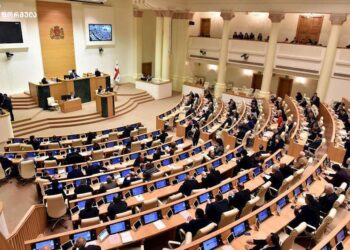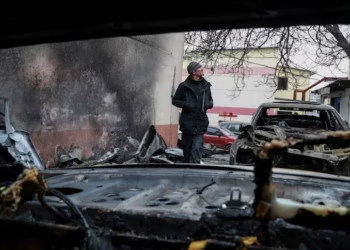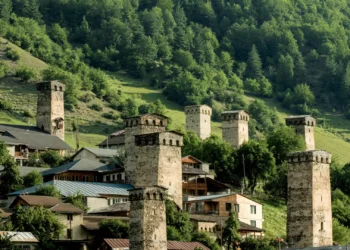The very first thing a visitor would hear from a guide during a city tour in Old Tbilisi is the description of a life-size fact that within the historical part of the Georgian capital, among many other lovable quaint spots, the shrines of all faiths have peacefully coexisted for centuries, with close-knit streets boasting Orthodox, Armenian and Catholic churches along with mosques and synagogues. The ideal tendency of mutual help and understanding, expressed in love and brotherhood, prevailed for many centuries in this outstanding place of religious and ethnic tolerance. It would have been extremely strange for the dwellers of the city of Tbilisi to discern between Christians, Muslims and Jews, or the people of any other faith, when it came to assisting each other in the everyday vicissitudes of life. They used to be faith-and-ethno-deaf-and-blind if they needed each other’s shoulders to rely on. Sakartvelo has always been a land of international coexistence and cooperation. That kind of attitude was very natural for a country that has historically enjoyed living right in the middle of the Silk Road, which so famously symbolized the active and fruitful interaction between the nations of the world. Trade and cultural exchange, economic mutuality and political communication determined Georgia’s place among the nations belonging both to Europe and Asia, our country having existed for millennia on the crossroads between the two.
This is why Georgia’s not-yet-completely recognized Europeanism is so natural for all of us in this country, with our belonging in the Asian sociopolitical and economic infrastructure sounding just as obvious. We are a strikingly internationally-minded people, tending more to constructive peace than to destructive belligerence. This statement of goodwill needs to be fathomed and understood well, and above all, taken seriously when the West is considering with thoughtful vacillation making a decision to integrate Géorgie into Euro-Atlantic structures or not. Here goes a veritable story, speaking volumes of how much the Georgian people desire, are ready for and deserve the honor and bliss of being “in.”
A couple of days ago, the beautiful Orbeliani Square, the site of Georgia’s presidential palace, right in the heart of Tbilisi, was pleasantly overcrowded. The city was celebrating the Days of Europe in a very European fashion: food and drinks degustation, various kinds of exhibitions, shows and concerts, all those enjoyable events in the open air, accompanied with beautiful spring weather and widely noticeable public delight. The small and the big hung out together, as usually happens in such an idyllic situation, with lots of smiling folks mixing and partying together. I have seen public events of this sort many times in various European cities, ones you do not want to go home from and wish would go on forever. That day, the public exaltation was natural and heartfelt. The open-air stage was filled with Spanish and Swedish folk music and choreography, the excited audience loudly and enthusiastically cheering the performers, presenting the European cultural pearls to the Georgian people. That unrestricted, beautiful and genuinely communal event, free of any charge, was organized by the Georgian government’s administrative leadership, the country’s foreign office and Tbilisi City Hall, with direct assistance from the Spanish and Swedish embassies in Tbilisi and their counterparts in Madrid and Stockholm.
The speeches that sounded right before the concert of Spanish and Swedish folk arts were full of optimistic notes on both sides that Georgia will definitely receive the European Union candidacy status. The optimism of the speechmakers was frank and believable, but, on another count, who if not Georgia should receive the cherished status, a nation with a strong European mindset and way of life? Where, if not in the family of European nations, is Georgia’s likely place for further existence and development? When, if not now, should Sakartvelo enjoy its deserved spot where it has always belonged in the most natural way?
Op-Ed by Nugzar B. Ruhadze














